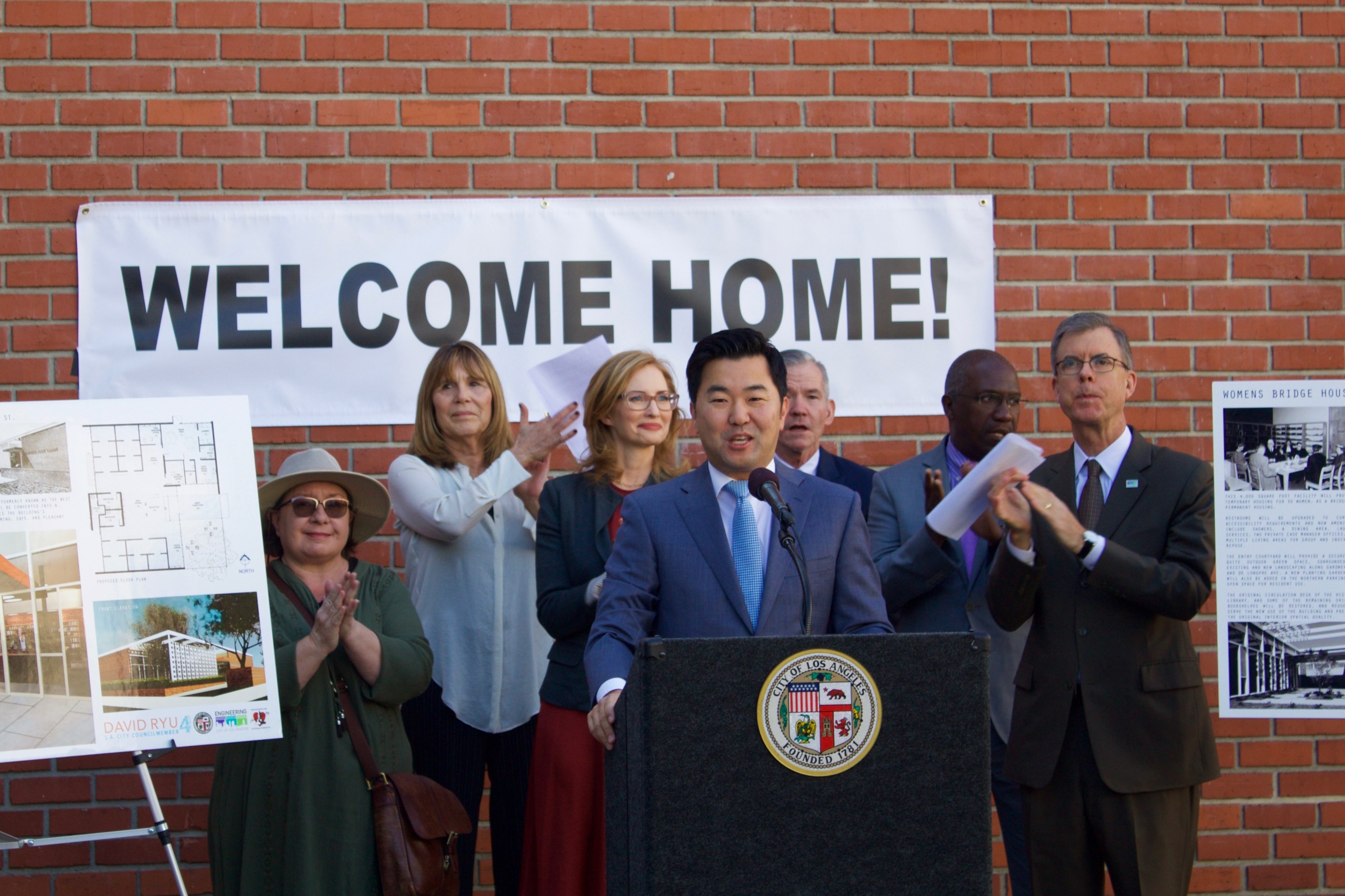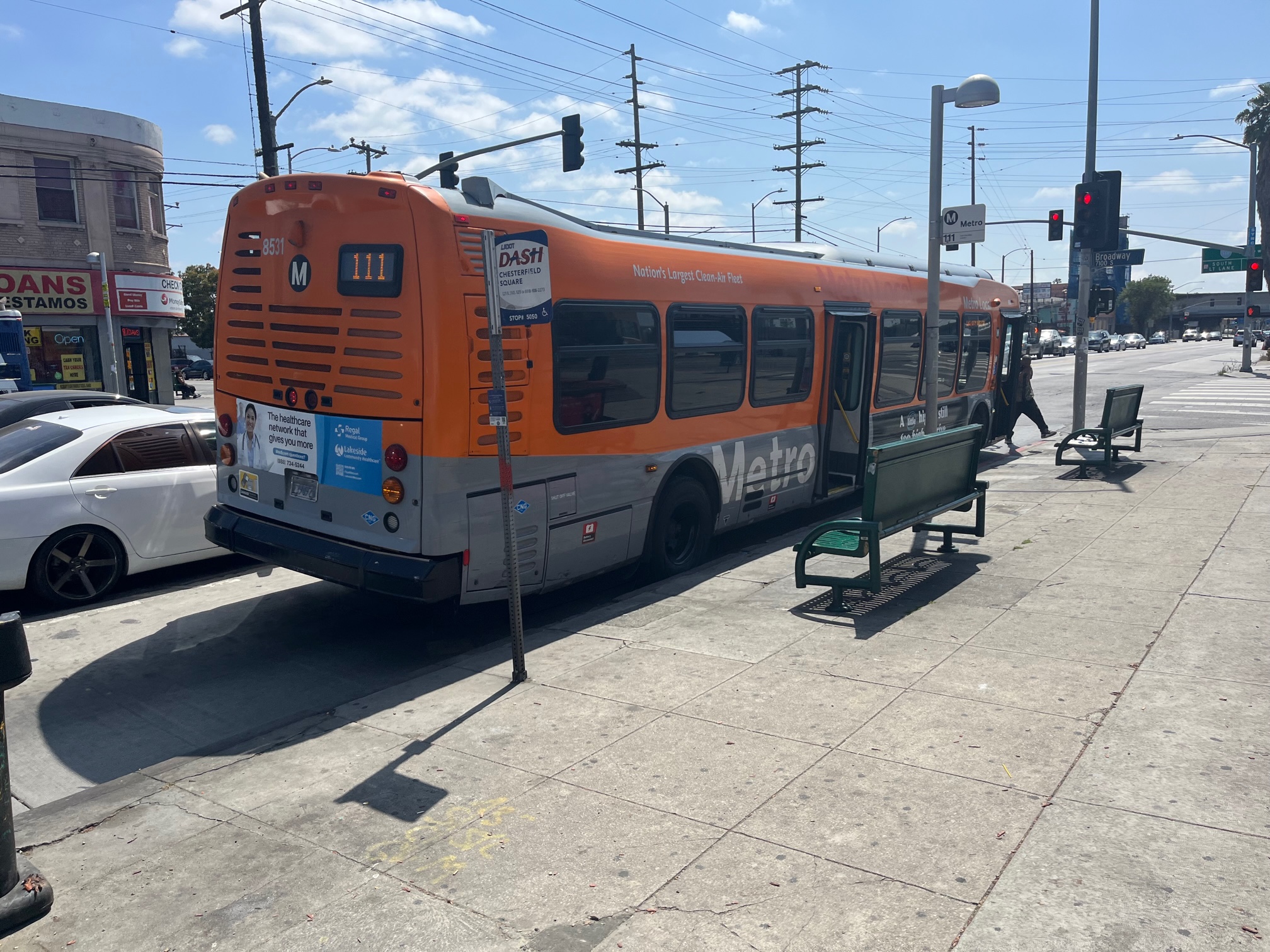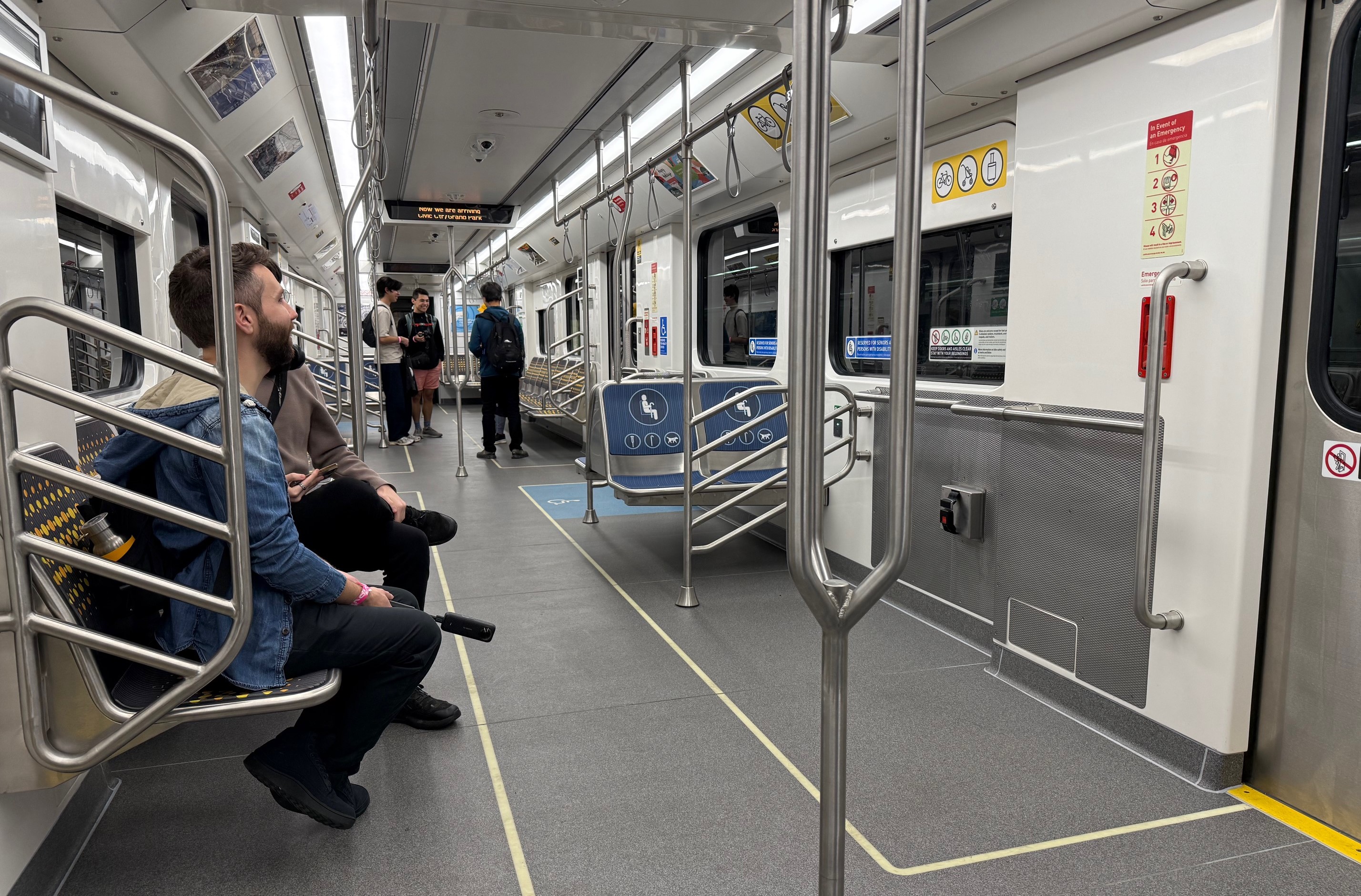Earlier today, Councilmember David Ryu celebrated the groundbreaking of a future bridge housing project at 1403 North Gardner Street, the site of the long-closed Hollywood Library. The new facility will specifically house women, and will feature thirty beds and amenities appropriate for this sub-section of the regional housing crisis. The development is scheduled to open next summer.
“Today, we are turning a new page in the story of homelessness in Hollywood and Council District Four,” Ryu said in a release. “I am proud to work with the City, County and community on turning this former library into a home, and into a beacon of hope for women facing homelessness.”
The project is funded by Measures H and HHH, which were passed in the 2016 election by voters in Los Angeles. It preceded Mayor Eric Garcetti's "A Bridge Home" program to find and identify locations throughout Los Angeles where short-term or permanent supportive housing can be built.
Ryu has been one of the Councilmembers, along with Mike Bonin and Herb Wesson, who has been caught in the center of a backlash against the city's efforts to reduce homelessness. He has been working to increase the number and types of beds available to people stuck on the streets. The backlash hasn't stopped Ryu from preaching that outreach and conversations are the cure to resistance and that the city has to keep moving forward.
“The voters approved HHH and H because they wanted us to do something," Ryu explained during an interview last week in his office in City Hall. Despite the public and loud backlash, Ryu is convinced that people want--no, are demanding--that the city move on reducing homelessness.
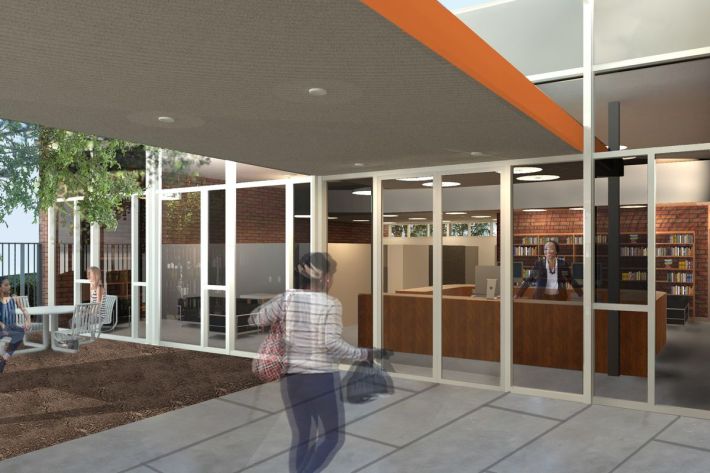
"And now, we’re doing something, but we have to give people a chance to weigh-in, to discuss, what’s going to happen in the communities where they live.”
While the Hollywood Library project has not been overly controversial, Ryu experienced the backlash first-hand at an open forum on what to do with vacant lots in Sherman Oaks. After a call for help to local Neighborhood Councils to identify potential locations for housing or safe park programs, the Sherman Oaks Neighborhood Council identified three lots owned by the Army Corps of Engineers that were not in use. Ryu asked the City Administration Office to review the sites to see what, if anything, the city could do there. Ryu's office decided to start the discussion early by hosting a public meeting to alert the community and begin to discuss options before the CAO released its report.
And that's where things started to get complicated. The public meeting was a raucous affair, with organized opposition to any proposed structure or parking lot coming to the neighborhood. Supporters were shouted down. As seen on the Westside, hollow but loud cries of a recall echoed in the hall.
But Ryu believes the outrage was just a misunderstanding.
"They thought (the project) was a done deal," Ryu explained in his office last week. "We went out to the community at the same time we were asking the city to study these lots. We don’t even know what the city’s going to say; we should find out soon, but we didn’t want people to feel surprised."
In fact, just yesterday the CAO released a letter and its study recommending that the city not move forward with any sort of project on the lands. The Army Corps. of Engineers has leased one of the lots to the city, but has not allowed the city to build housing on the lot, nor has it been responsive about the other lots. (For more, visit this article at the Daily News.)
Yet Ryu doesn't see the outreach, backlash, or effort put into the Sherman Oaks projects as a negative.
“After that meeting there was a lot more interest in small group meetings, which is really the best way to talk with people," continued Ryu. "A lot of time people at the meetings understood what we are doing better. I won’t say they became supporters, but they understood.”
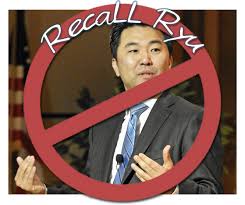
Sometimes understanding can be in short supply. The Sherman Oaks meeting was not an aberration in the city's outreach efforts to use the funding provided by ballot propositions to build bridge housing and permanent supportive housing.
As noted above, Councilmember Mike Bonin hosted a forum on a bridge housing shelter in Venice. Bonin and Los Angeles Mayor Eric Garcetti spent hours answering questions and responding to protestors who chanted "Venice Says NO" in addition to other, less politically correct, slogans. Council President Herb Wesson faces similar backlash over a proposed development in Koreatown.
Outside of the anger, there is another thread that connects this backlash. While everyone wants solutions to homelessness, there is controversy in communities where developments are proposed. When this reporter was covering a crosswalk opening in Venice, a protestor asked why Venice was being proposed for a homeless shelter when there are many other places that, to him, made more sense. At a City Council meeting on the proposed Koreatown shelter, a woman asked, “Why are you targeting only Koreatown?”
Ryu has heard this concern too.
"I’ve heard ‘why don’t you build near the beach?’ commented Ryu. "Why don’t you build in Koreatown?’ ‘Why don’t you build in downtown?’ Of course, the city already is looking there.”
Ryu points to this confusion to counter the idea that there is an organized response to proposed homeless shelters, similar to what Keep L.A. Moving is to transportation projects.* Instead, people are reacting to changes in their neighborhoods with which they are not comfortable.
“People don’t come out to meetings because they’re angry, they come out because they’re scared," Ryu explains. "They’re scared because they’re worried about shelters (or housing) bringing more homeless people to their communities. But the truth is, they’re already here.”
*The Keep L.A. Moving analogy is mine, not Ryu's.
